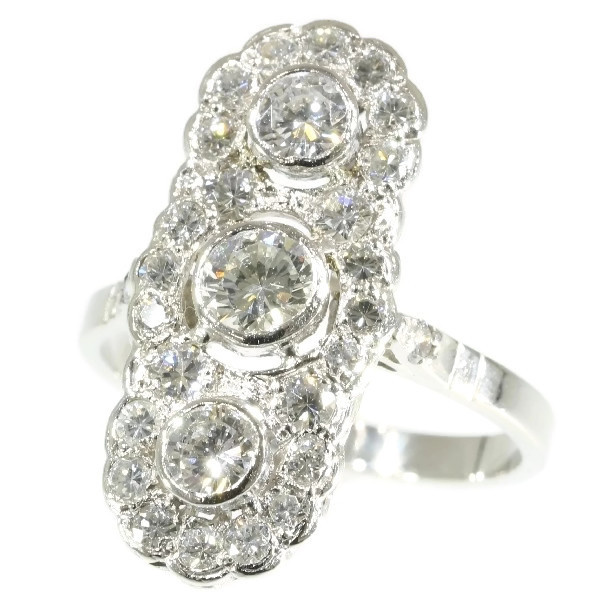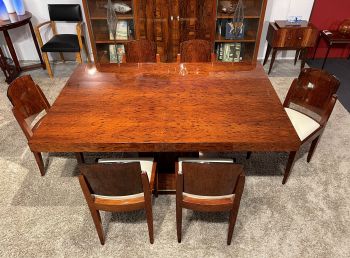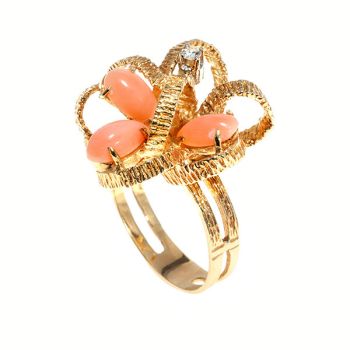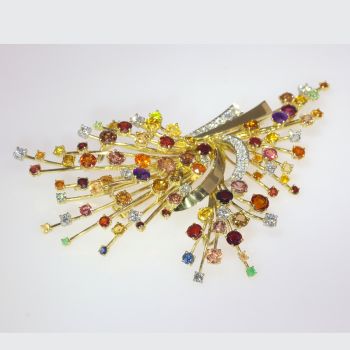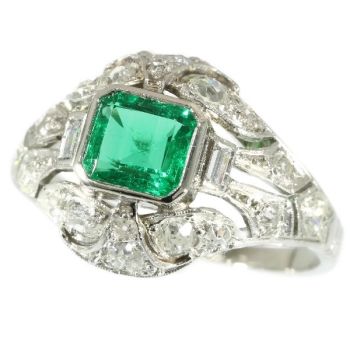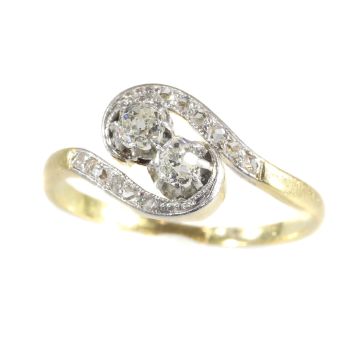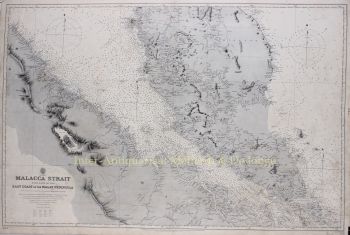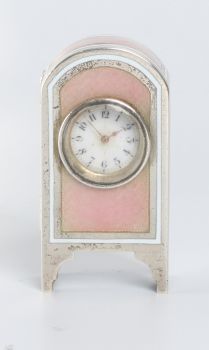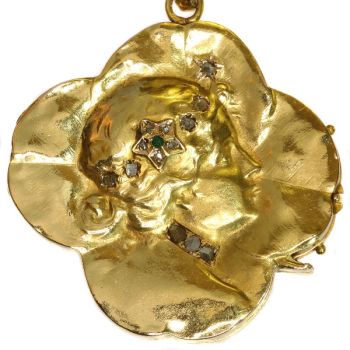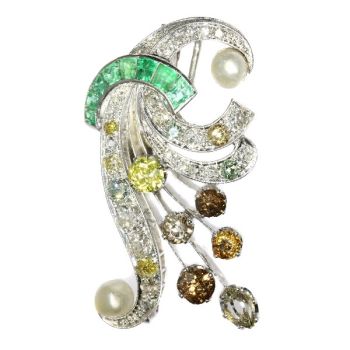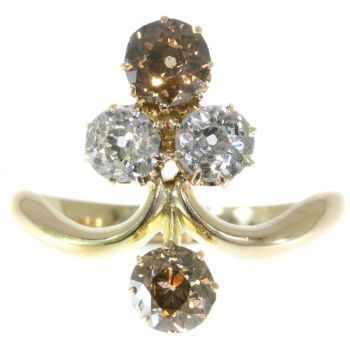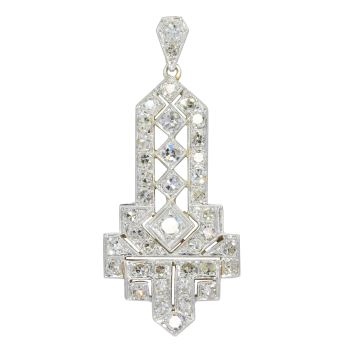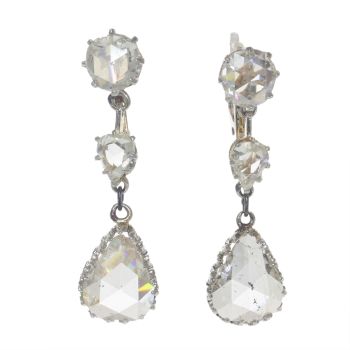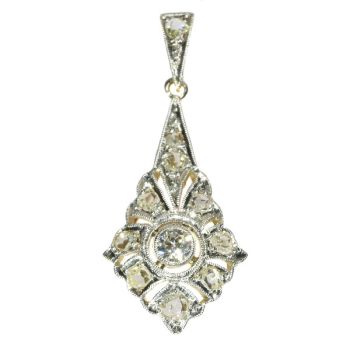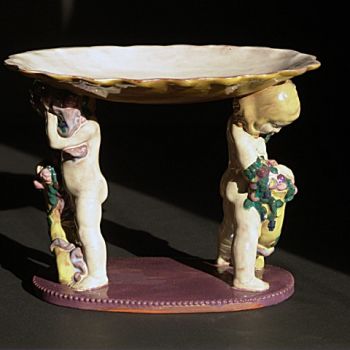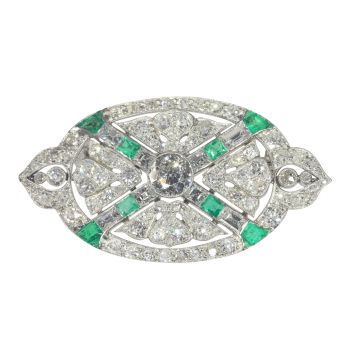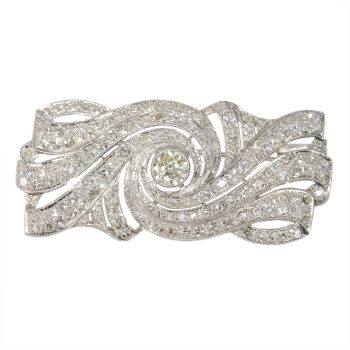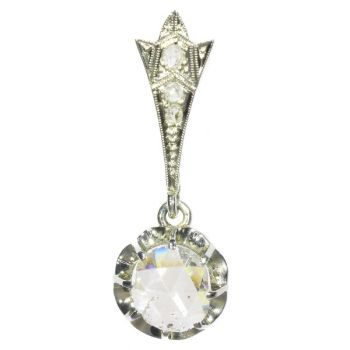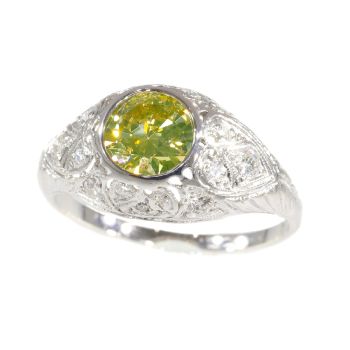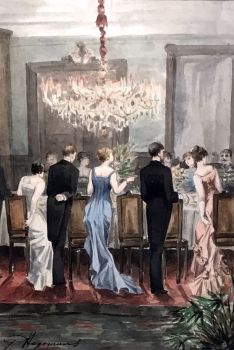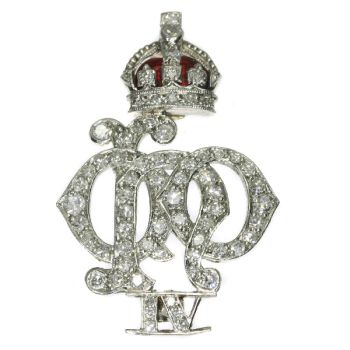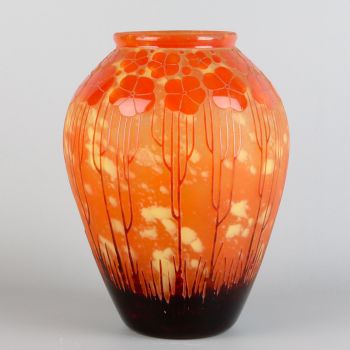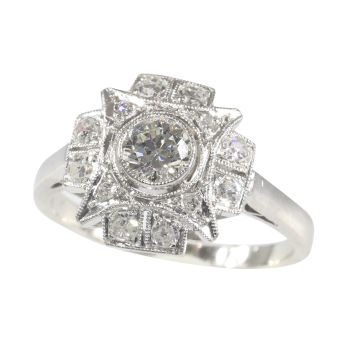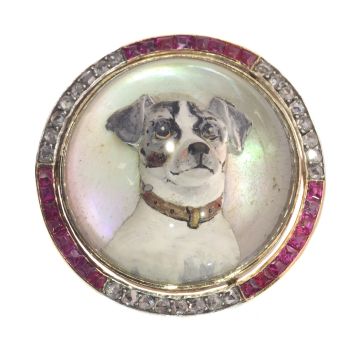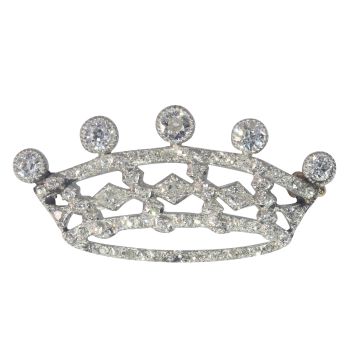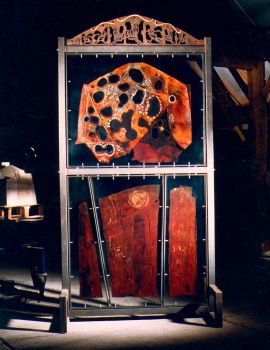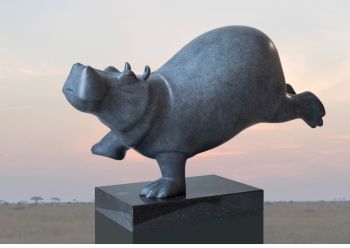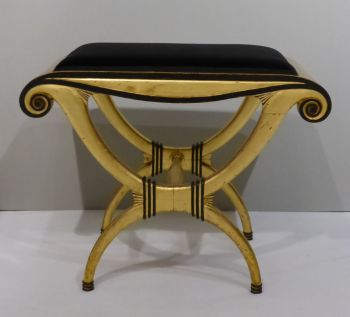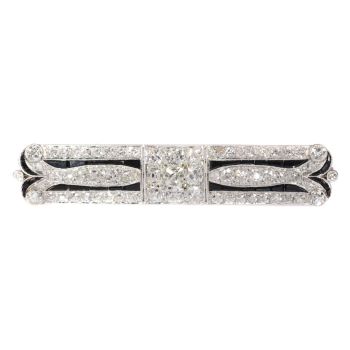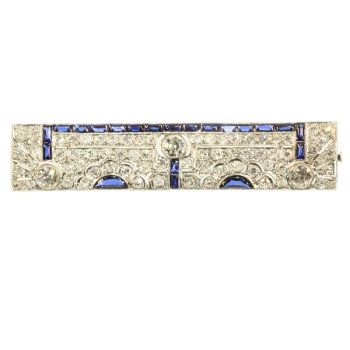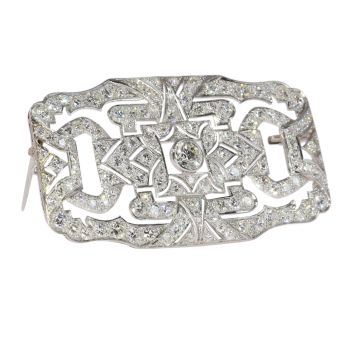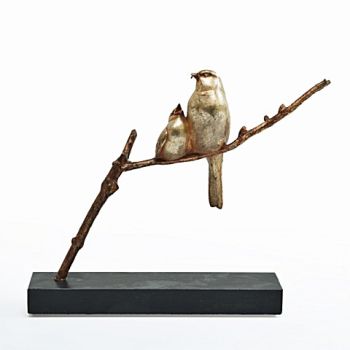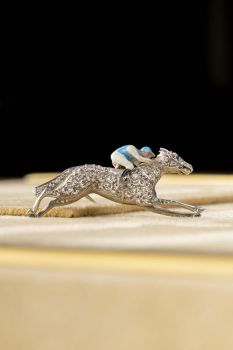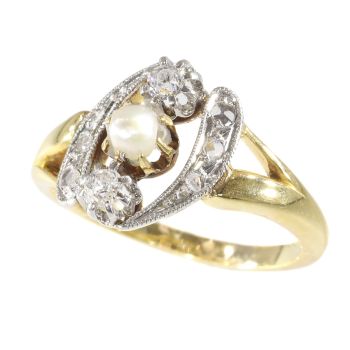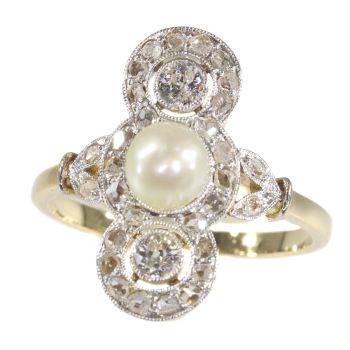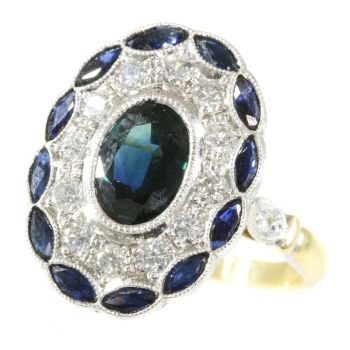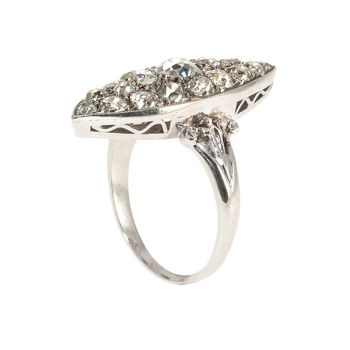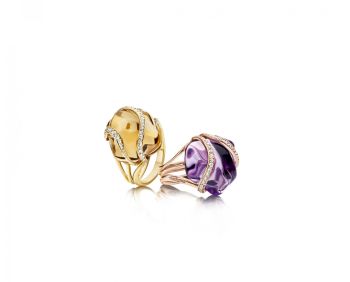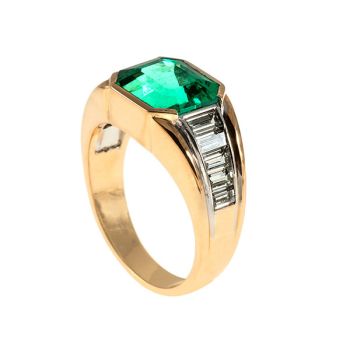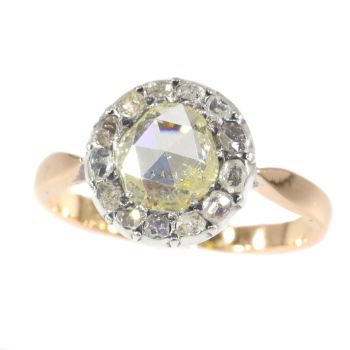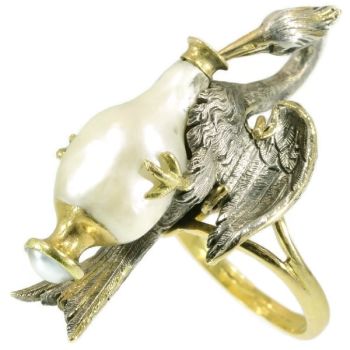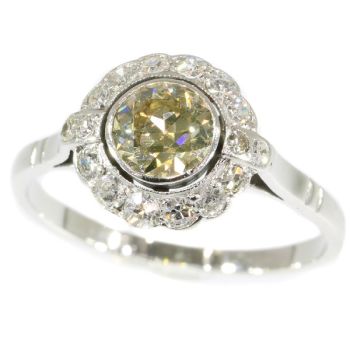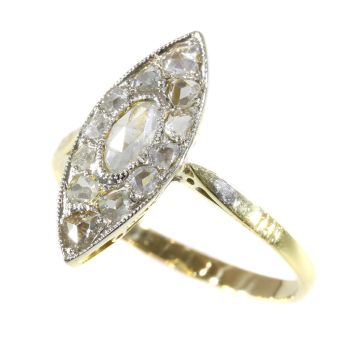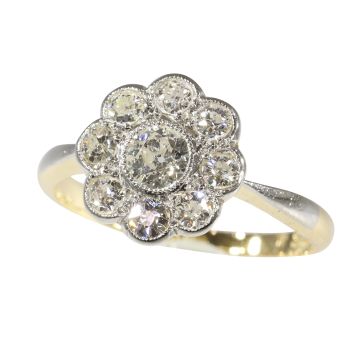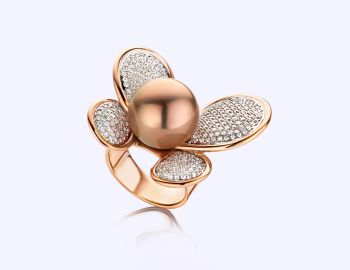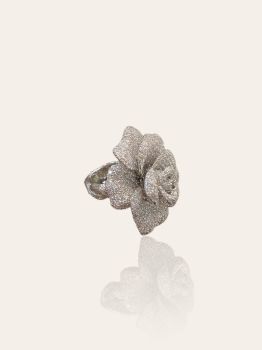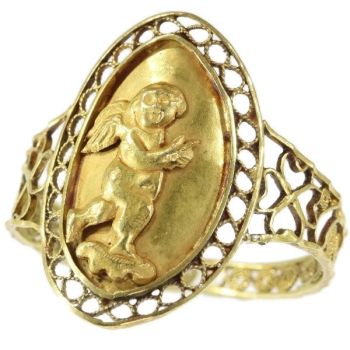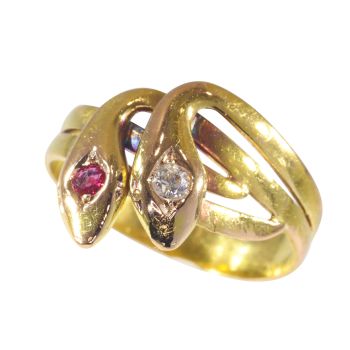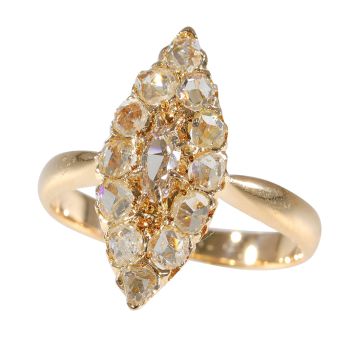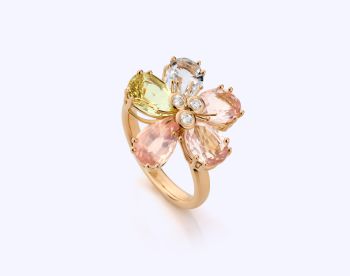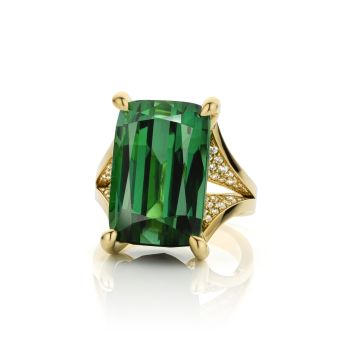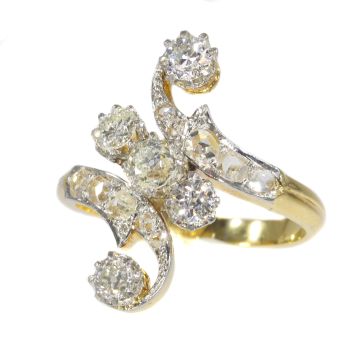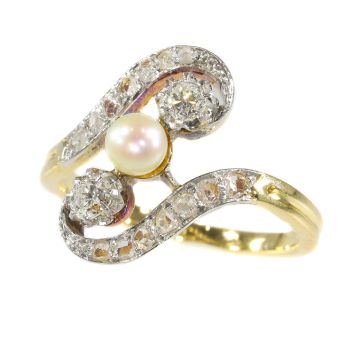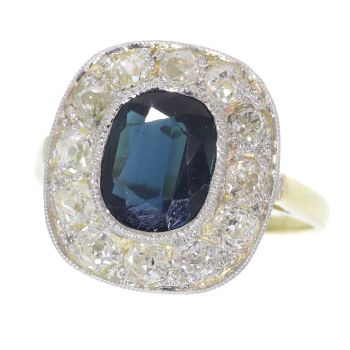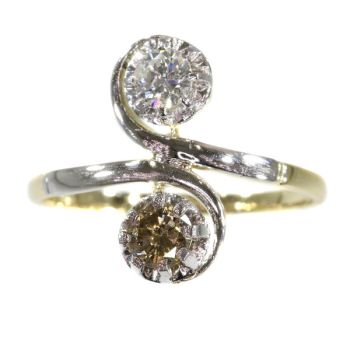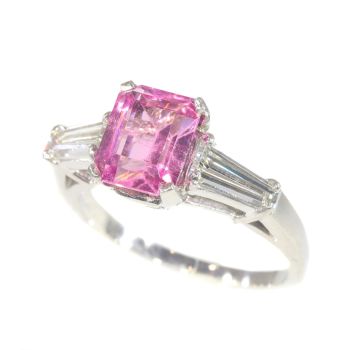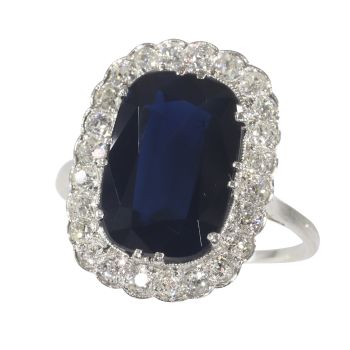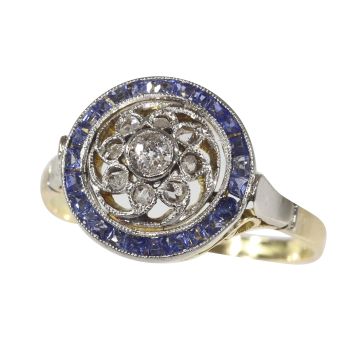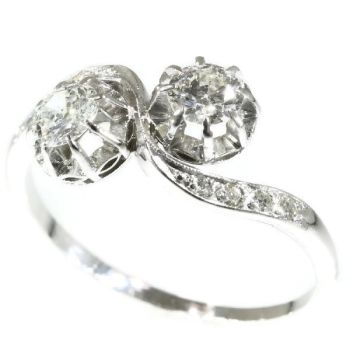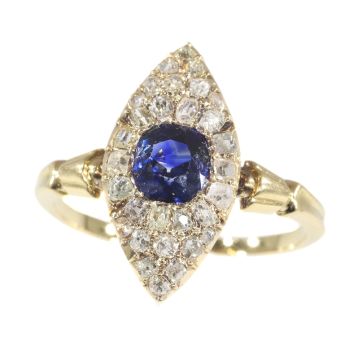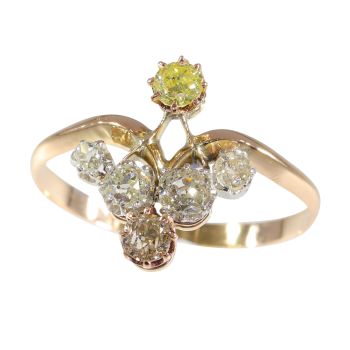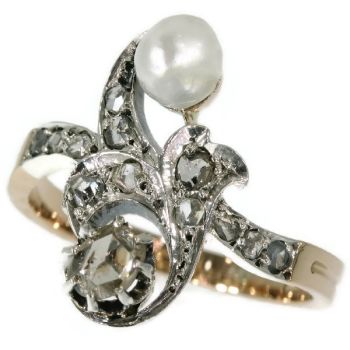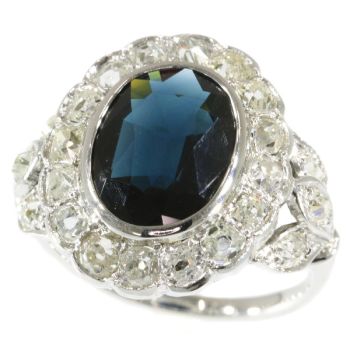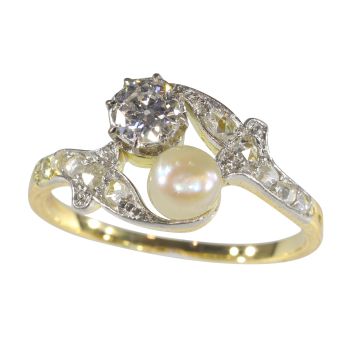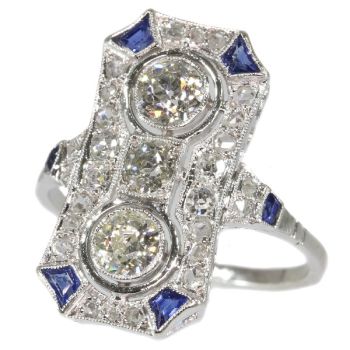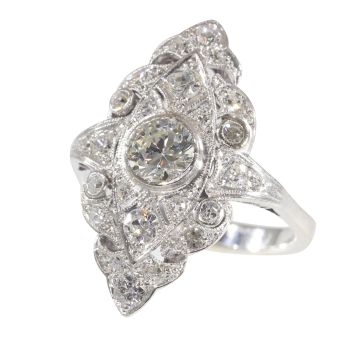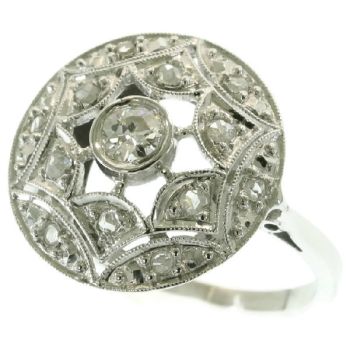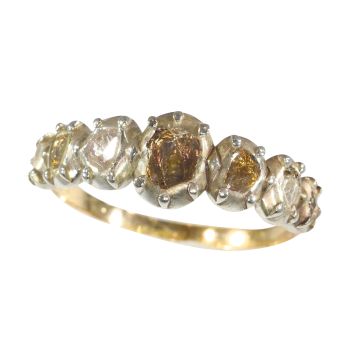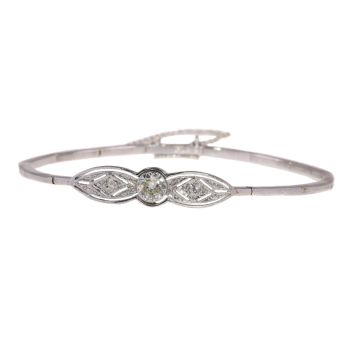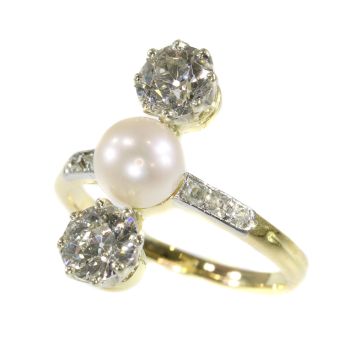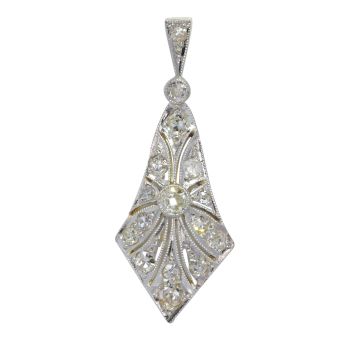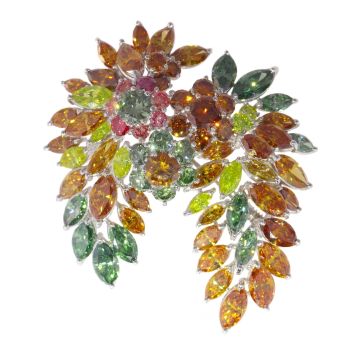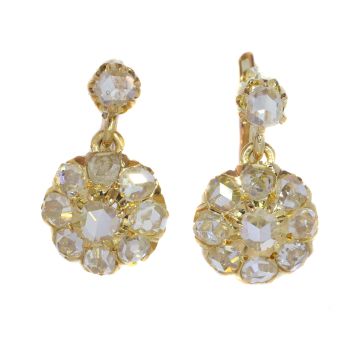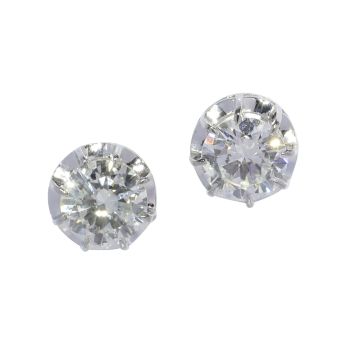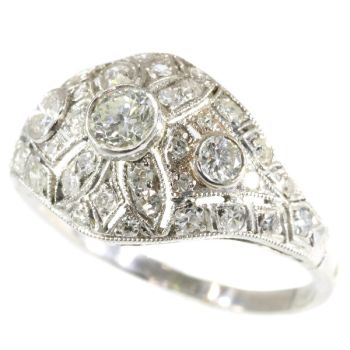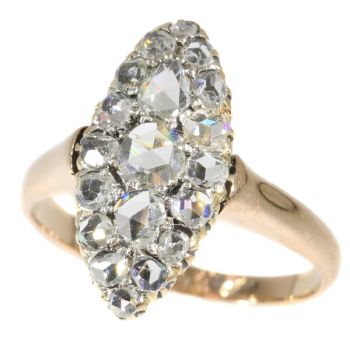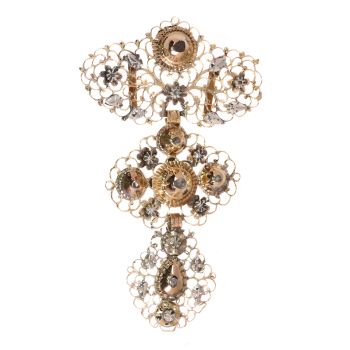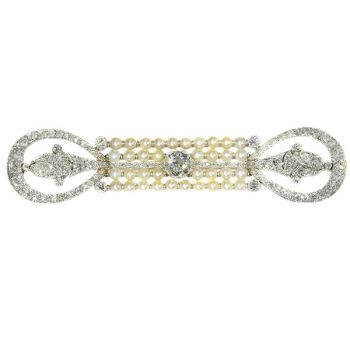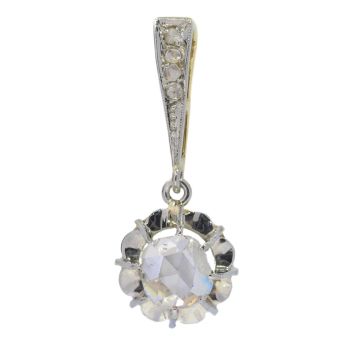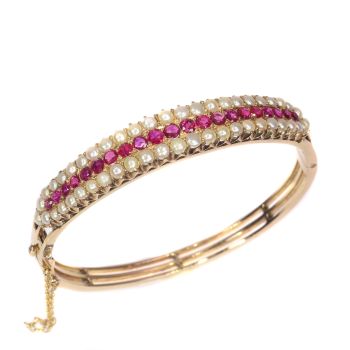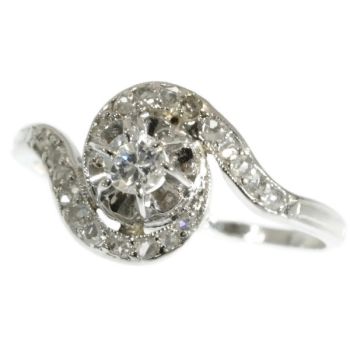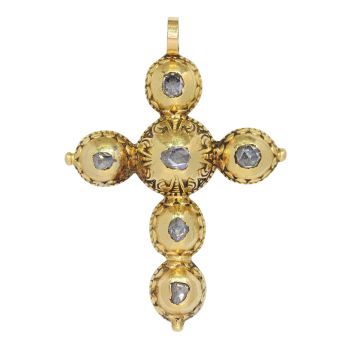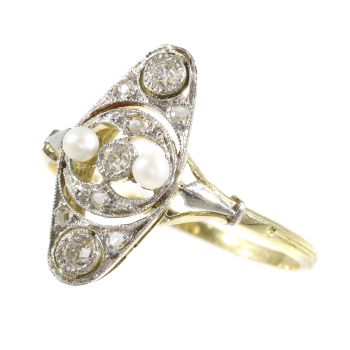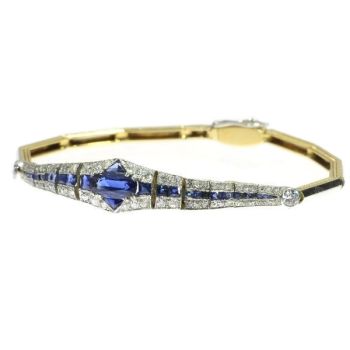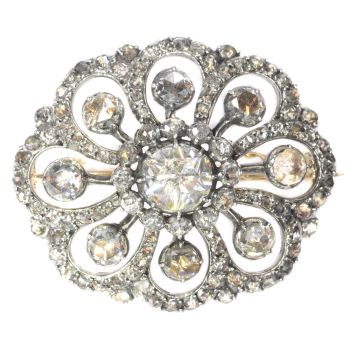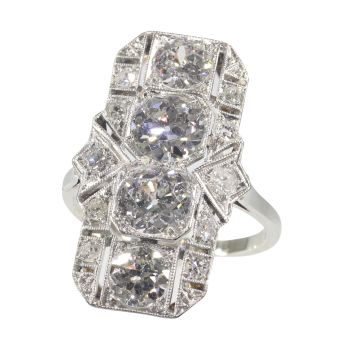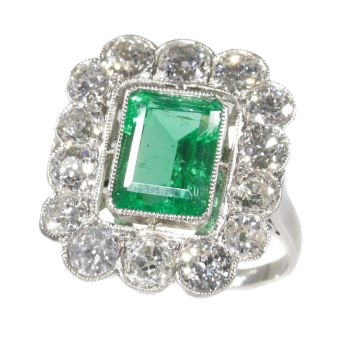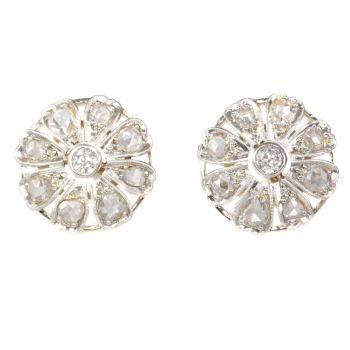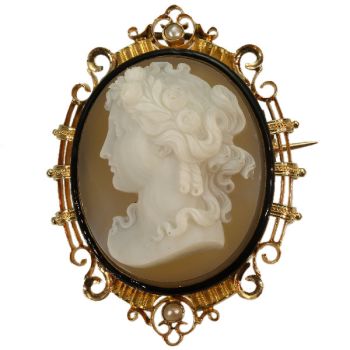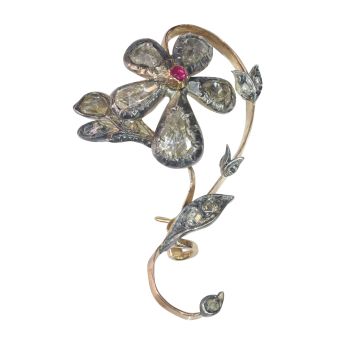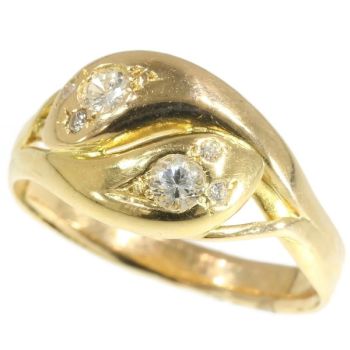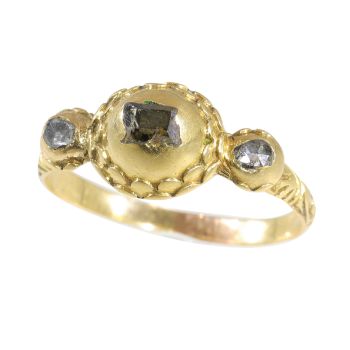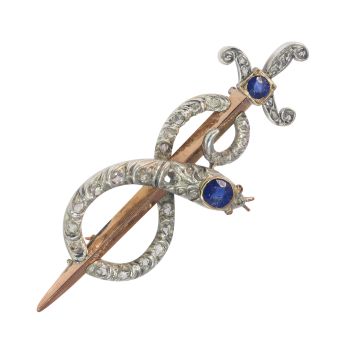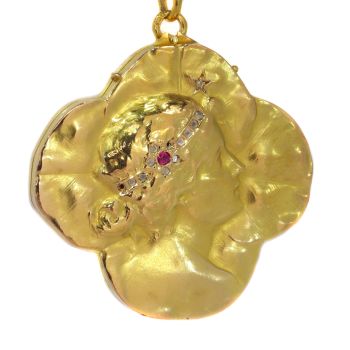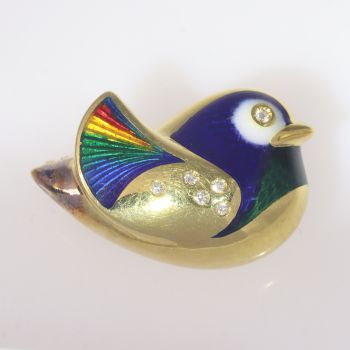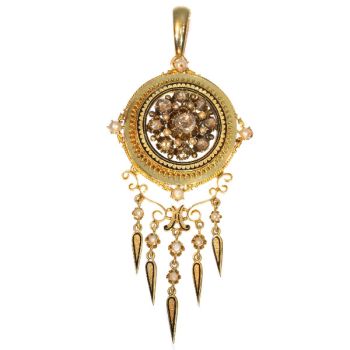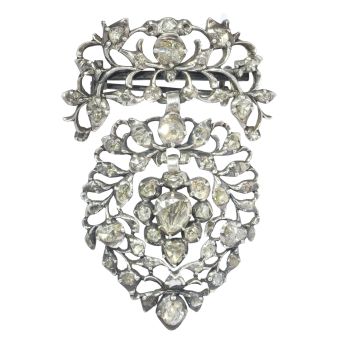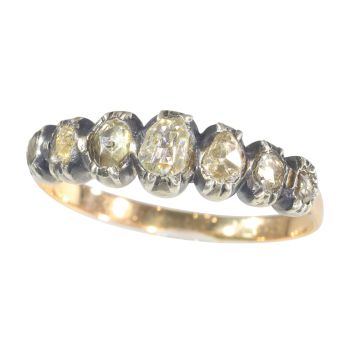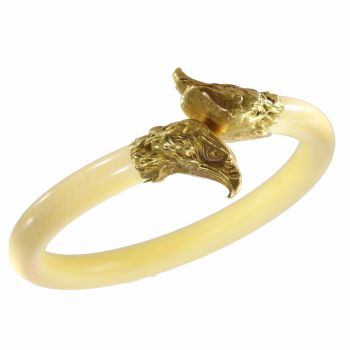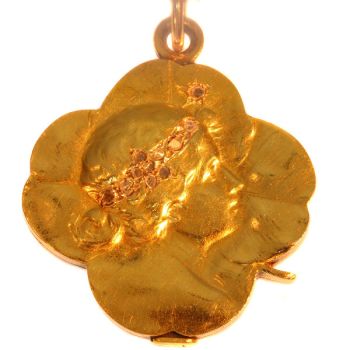Art Deco engagement ring platinum and diamonds 1950
Unknown artist
DiamondGemstonePlatinum
€ 6.250
Adin Fine Antique Jewellery
- About the artwork
Antique jewelry object group: engagement ring (or anniversary ring)
Condition: excellent condition
- (more info on our condition scale)
Country of origin:Although it does not carry any legible control marks we believe this to be of Belgian origin.
Style: Although most people would call this style Art Deco it is more considered to be a product of the fifties of the Twentieth Century. Strongly influenced by Art Deco but also by the Retro style. That to most people this is Art Deco is no coincidence as both Retro style and Fifties style are the style successors of Art Deco.or more info on styles
Style specifics: This type of jewelry is very specific for the fifties of the twentieth century. The Art Deco period preceded only 20 years and was still used as source of inspiration, it is (even for the trained eye) sometimes very hard to note the difference betweenArt Deco and Fifties.
Period: ca. 1950
- (events & facts of this era, poetry of this era, fashion of this era)
Material: platinum
- (more info on precious metals)
Extra information: Diamond is the birthstone for the month of April, and besides being the most popular gemstone for engagement rings, it is also the anniversary gem for the 10th and 60th years of marriage.
Even though the diamond is the hardest of all gemstones known to man, it is the simplest in composition: it is common carbon. The ancient Greeks believed that diamonds were splinters of stars fallen to earth. It was even said by some that they were thetears of the Gods or perhaps crystallized lightning or hardened dew drops. The exact origin of diamonds remained something of a mystery for centuries.
In ancient times only kings wore diamonds as a symbol of strength, courage and invincibility. Over the centuries, the diamond acquired its unique status as the ultimate gift of love. It was said that Cupid's arrows were tipped with diamonds which have amagic that nothing else can ever quite equal.
But it wasn't until 1477, when Archduke Maximillian of Austria gave a diamond ring to Mary of Burgundy, that the tradition of diamond engagement rings began. Even the reason a woman wears it on the third finger of her left hand dates back to the earlyEgyptian belief that the vena amoris (vein of love) ran directly from the heart to the top of the third finger, left hand.
Diamond(s): One brilliant cut diamond with an estimated weight of ± 0.40ct. (colour and clarity: F/G, vs/si).
Two brilliant cut diamonds with an estimated weight of ± 0.44ct. (colour and clarity: F/H, vs/si).
Four brilliant cut diamonds with an estimated weight of ± 0.28ct. (colour and clarity: F/H, vs/si).
22 brilliant cut diamonds with an estimated weight of ± 0.66ct. (colour and clarity: F/G, vs/si).
- All diamond weights, color grades and clarity are approximate since the stones were not removed from their mounts to preserve the integrity of the setting.
Total diamond weight: approx. 1.78 crt.
Birthstones: Diamond is the birthstone (or month stone) for April.
- (more info on birthstones)
Hallmarks: No trace.
- (more info on hallmarks)
Dimensions: top of ring 1,16 cm (0,46 inch) x 2,42 cm (0,95 inch)
Weight: 5,30 gram (3,41 dwt)
Ring size Continental: 56 & 17¾ , Size US 7½ , Size UK: O½
Resizing: Free resizing (only for extreme resizing we have to charge).
- (more info on ring sizes)
Reference Nº: 16300-0191
Copyright photography: Adin, fine antique jewelry
- About the artist
It might happen that an artist or maker is unknown.
Some works are not to be determined by whom it is made or it is made by (a group of) craftsmen. Examples are statues from the Ancient Time, furniture, mirroirs, or signatures that are not clear or readible but as well some works are not signed at all.
As well you can find the following description:
•“Attributed to ….” In their opinion probably a work by the artist, at least in part
•“Studio of ….” or “Workshop of” In their opinion a work executed in the studio or workshop of the artist, possibly under his supervision
•“Circle of ….” In their opinion a work of the period of the artist showing his influence, closely associated with the artist but not necessarily his pupil
•“Style of ….” or “Follower of ….” In their opinion a work executed in the artist’s style but not necessarily by a pupil; may be contemporary or nearly contemporary
•“Manner of ….” In their opinion a work in the style of the artist but of a later date
•“After ….” In their opinion a copy (of any date) of a work of the artist
•“Signed…”, “Dated….” or “Inscribed” In their opinion the work has been signed/dated/inscribed by the artist. The addition of a question mark indicates an element of doubt
•"With signature ….”, “With date ….”, “With inscription….” or “Bears signature/date/inscription” in their opinion the signature/ date/ inscription has been added by someone other than the artist
Are you interested in buying this artwork?
Artwork details
Related artworks
Unknown artist
A Dutch colonial Indonesian betel box with gold mounts1750 - 1800
Price on requestZebregs & Röell - Fine Art - Antiques
1 - 4 / 12- 1 - 4 / 24
- 1 - 4 / 24
- 1 - 4 / 24
- 1 - 4 / 24
- 1 - 4 / 12

